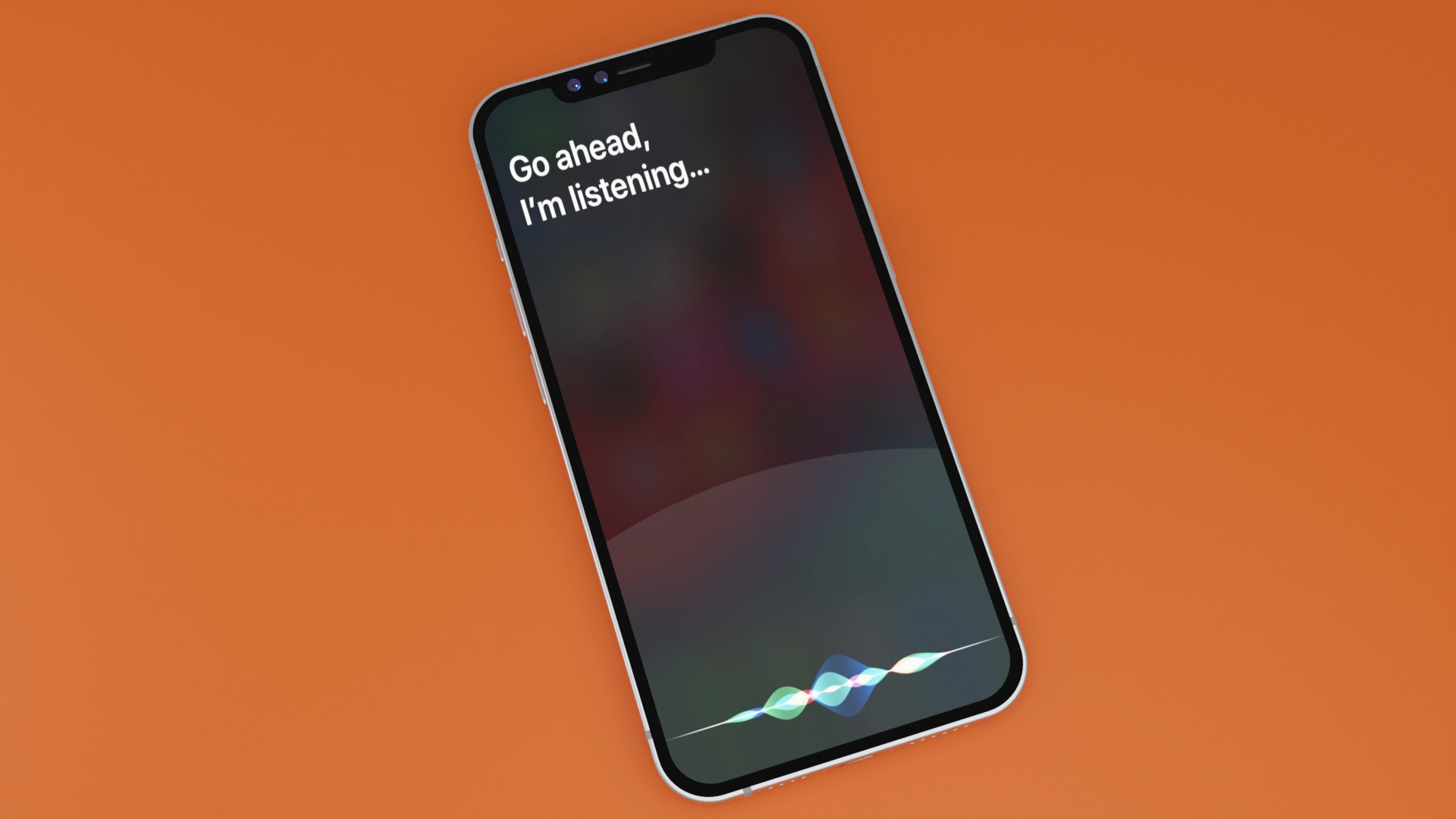Your phone actually is listening to you, or so one marketing company has claimed
But is it really possible?

Who hasn't paused to ask themselves "Is my phone listening to me?" as we finish a phone call or a face-to-face conversation with somebody only to then stumble across an eerily relevant advert shortly thereafter?
I know I have, and I also know how disconcerting it can be — especially when bringing this up will see you lambasted as some sort of paranoid conspiracy theorist. Perhaps it's just a coincidence. Or, maybe, it's true.
Media conglomerate Cox Media Group (CMG) claims that not only is it possible to target potential customers based on speech collected by a smartphone or any other smart device's microphone, but that it's entirely legal to do so, and that it could offer this service (which it calls Active Listening) to marketing companies to take advantage of.
"Yes, our phones are listening to us"
The revelation comes by way of 404 Media, who originally reported on the company's claimed Active Listening capabilities in December 2023, who have also recently shared a pitch deck that was reportedly sent to prospective partners.
The original story centered around a blog post by CMG that bragged about its Active Listening capabilities, brazenly proclaiming that "Yes, our phones are listening to us," that "It is legal for phones and devices to listen to you and for third parties to collect that data," and "We can identify buyers based on casual conversations in real time."
The since-removed blog post has been archived online, defying CMG's efforts to brush the controversy under the rug, and demonstrates an egregious disregard for customer personal privacy in its efforts to help marketers "target, retarget, and retain customers."
The marketing delusion
Not only is Cox Media Group's approach to gaining data highly questionable — especially given claims from companies like Google, Apple, and Amazon that its smart devices only listen for 'wake words' like "Hey Google," "Hey Siri," or "Alexa" — but the company's mindset seems entirely disconnected from how customers would feel about this technology if it was more widely known about.
Stay in the know with Laptop Mag
Get our in-depth reviews, helpful tips, great deals, and the biggest news stories delivered to your inbox.
CMG's blog post even begins by hypothesizing about Active Listening before stating "No, it's not a Black Mirror episode — its Voice Data, and CMG has the capabilities to use it to your business advantage," seemingly entirely unaware that episodes of Charlie Brooker's sci-fi anthology series typically focus on the dystopian and distasteful outcomes of technology. Not that it would be something to brag about.
Further into the blog post, CMG also claims that its Active Listening services can deliver "Unprecedented understanding of consumer behavior," allowing it to specifically tailor ads which it claims will make people think: "Wow, they must be a mind reader."
Presumably, this is what a person might say when encountering these tailored ads for the first time, before then thinking back to everything else they might've said in the vicinity of said device over the last few years, before promptly smashing it to pieces with a hammer or any other blunt instrument to hand.
Exceptional claims require exceptional evidence
While CMG's claims are shocking, they are, at the end of the day, still just claims. While the company holds up partnerships with Google, Amazon, and Facebook, it's worth noting that CMG is only a member of their ad partner programs and that none of the mentioned companies are engaged with the Active Listening campaign.
While it's true that your phone is listening to you, it's unlikely that it's listening to you in the ways you might presume. As mentioned, most devices are constantly listening for your voice, but only to wake virtual assistants or perform actions through voice commands.
In fact, Google and Amazon have publicly stated that their smart devices don't engage in active listening as implied by CMG beyond using known wake words, and Facebook creator Mark Zuckerberg has denied claims that the company listens to its users to generate targeted ads during an April 2008 testimony to US congress.
During his testimony, Zuckerberg referred to the idea as a "conspiracy theory that gets passed around that we listen to what’s going on on your microphone and use that for ads," before firmly stating "We don’t do that."
However, beyond wake words, what you say to your smart devices is often converted into anonymous data that can be sold to third parties for advertising uses. Outside of these interactions, there exists no real evidence that smart devices can and will listen to users — despite CMG's claims.
The truth behind CMG's claims
Thankfully, CMG's claims appear to be somewhat hyperbolic. In a statement directed to Ars Technica, the company redefined its Active Listening capabilities so something much more mundane revealing its advertising tools as "third-party vendor products powered by data sets sourced from users by various social media and other applications then packaged and resold to data servicers." Essentially, the same aggregated data other marketers may have access to.
However, CMG's hyper-charged language in its original blog post is not explained. CMG refers to "The growing ability to access microphone data on smartphones and tablets" allowing an unnamed technology partner to "aggregate and analyze voice data during pre-purchase conversations" like how a smartphone may eavesdrop on a conversation about "which SUV model is best for the family with our spouse."
While CMG claims that it can't "listen to any conversations or have access to anything beyond a third-party aggregated, anonymized and fully encrypted data set that can be used for ad placement," it's this kind of language that muddies the waters.
Active Listening: Is it possible?
Is Active Listening possible? That's hard to say for certain. Both Google and Apple have found themselves fending off claims that one another's smart assistants are listening in more than they should in the past. But that isn't to say anything nefarious was afoot. Nor does it mean either company was engaged in an actual campaign to farm for ad-driving voice data.
Several experiments have been performed to see if external audio can influence a smartphone's ad delivery, most of which (like this study by Elleen Pan, Jingjing Ren, Martina Lindorfer, Christo Wilson, and David Choffnes), result in no effect on shown advertisements.
While it may potentially be possible for an app or smart device to engage in Active Listening in the way CMG suggested, it would seem that, at present, none do.
More from Laptop Mag

Rael Hornby, potentially influenced by far too many LucasArts titles at an early age, once thought he’d grow up to be a mighty pirate. However, after several interventions with close friends and family members, you’re now much more likely to see his name attached to the bylines of tech articles. While not maintaining a double life as an aspiring writer by day and indie game dev by night, you’ll find him sat in a corner somewhere muttering to himself about microtransactions or hunting down promising indie games on Twitter.
